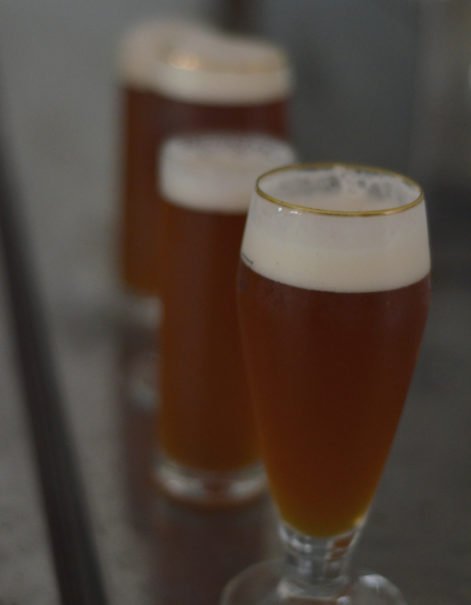
A Story About Love and Hops, from Scotland to Ghana
IPA in Accra
Almost five years ago, I poured a pint of Scotland’s Black Isle Blonde for a Ghanaian chef who came into the bar I worked at in Edinburgh. We bonded over our love of the beer, and he told me all about his country, which I was, coincidentally, about to visit.
This new favorite customer of mine, named John, raved about the hospitality of his fellow-Ghanaians, and how much I’d love it there, promising to connect me with his friends and family.
Fast-forward to June 2017, the chef and I are married, living in Ghana’s capital, Accra, and we’ve found something to rival that Scottish beer we both miss so much.
It’s a hot afternoon, and after being stuck in the usual Accra traffic, we turn down a pothole-riddled, dusty road on the outskirts of this sprawling city to meet brewer Clement Djameh, the owner of Ghana’s only microbrewery. Before we begin our personal tour of the Inland Microbrewery, which takes up part of the bottom floor of a residential house, Clement points out a small crop of sorghum growing outside.
It’s this grain that makes up his beers—it thrives in semi-arid regions—like Ghana’s impoverished northern region.
Clement wanted to use it in his beer to help farmers in Ghana, taking it from a subsistence crop to industrial use. His beers are brewed with 100 percent malted sorghum instead of the usual imported malted barley, commonly found in beers here and across the globe.
He sells his beers for private functions in Ghana, where people buy it by the keg and rent the equipment to serve it, including the dispenser and fridges.
With the tour over and the blazing sun setting on another day, we step outside and, with Oladapo Loto, a visiting brewer from Nigeria, we taste one of these sorghum brews.
Cool glasses of Clement’s IPA are handed out. The foaming top recedes and as John and I take that first sip, his eyes widen.“Whoa, this is so good. This reminds me of that Black Isle Blonde,” he says.
The IPA is smooth and full-bodied. It’s a golden caramel color and doesn’t have the harshness I often find with the local, commercial beers here in Ghana.
While we savor the brew, we talk politics, economics, and corruption—the usual fodder for a Thursday evening. Oladapo and Clement tell us about the 24/7 obsession commercial brewing becomes. But microbrewing gives Clement more freedom.
Interestingly, there’s nothing like this in Nigeria, Oladapo tells us.
“If it was in Nigeria, by now it would have exploded,” he says, to a chorus of “Then start one!”
After visiting Clement’s, he might just do that.